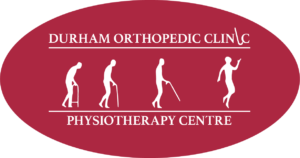Work-related injuries are a common issue that can impact employees’ productivity and quality of life. From repetitive strain injuries to acute accidents, these injuries can cause significant pain and disability if not properly managed. Physiotherapy offers effective treatment strategies to address these injuries, promote recovery, and prevent future occurrences.
Understanding Work-Related Injuries
Work-related injuries encompass a wide range of conditions that occur due to various occupational activities. Some common types include:
- Repetitive Strain Injuries (RSIs): Caused by repetitive movements and overuse of certain body parts, leading to conditions like carpal tunnel syndrome, tendinitis, and bursitis.
- Musculoskeletal Disorders (MSDs): Affect muscles, tendons, ligaments, and nerves, often resulting from poor posture, heavy lifting, or prolonged static positions.
- Acute Injuries: Result from sudden incidents such as slips, trips, falls, and accidents, leading to sprains, fractures, and contusions.
- Back and Neck Pain: Commonly associated with improper ergonomics, heavy lifting, and prolonged sitting or standing.
How Physiotherapy Can Help
Physiotherapy plays a crucial role in the treatment and rehabilitation of work-related injuries. Here’s how:
- Pain Management: Physiotherapists use various techniques such as manual therapy, electrotherapy, and acupuncture to alleviate pain and reduce inflammation.
- Restoring Function and Mobility: Through targeted exercises and stretches, physiotherapy helps restore strength, flexibility, and range of motion, enabling employees to perform their work tasks more efficiently.
- Ergonomic Assessment and Education: Physiotherapists assess the workplace setup and provide recommendations for ergonomic improvements. They educate employees on proper body mechanics and posture to prevent further injuries.
- Personalized Rehabilitation Programs: Physiotherapists design individualized rehabilitation programs tailored to the specific needs and goals of each employee, ensuring a safe and effective recovery process.
- Preventing Future Injuries: By addressing the root causes of injuries and providing preventive strategies, physiotherapy helps reduce the risk of recurrence, promoting long-term occupational health.
Effective Physiotherapy Techniques for Work-Related Injuries
- Manual Therapy: Includes techniques such as massage,myofascial techniques, joint mobilization, and manipulation to relieve pain, reduce muscle tension, and improve joint function.
- Exercise Therapy: Customized exercise programs focus on strengthening weakened muscles, improving flexibility, and enhancing overall physical conditioning.
- Functional Training: Exercises that mimic work-related tasks to improve functional capacity and ensure a smooth transition back to work.
- Ergonomic Training: Education on proper workplace ergonomics, body mechanics, and posture to prevent strain and injury.
- Pain Management Modalities: Use of modalities such as ultrasound, TENS (transcutaneous electrical nerve stimulation), and acupuncture to manage pain and inflammation.
Steps to Take After a Work-Related Injury
- Seek Immediate Medical Attention: Prompt medical evaluation ensures proper diagnosis and treatment of the injury.
- Report the Injury: Inform your employer about the injury as soon as possible to initiate the workers’ compensation process.
- Consult a Physiotherapist: Early intervention by a physiotherapist can accelerate recovery and prevent complications.
- Follow the Rehabilitation Plan: Adhere to the prescribed physiotherapy exercises and recommendations to achieve optimal recovery.
- Implement Ergonomic Changes: Make necessary adjustments to your workplace setup as advised by your physiotherapist to prevent future injuries.
Benefits of Physiotherapy for Work-Related Injuries
- Faster Recovery: Physiotherapy promotes quicker healing and helps employees return to work sooner.
- Reduced Pain and Discomfort: Effective pain management techniques alleviate discomfort and improve overall well-being.
- Improved Functionality: Restored strength, flexibility, and mobility enable employees to perform their job tasks more effectively.
- Preventive Care: Education and ergonomic training reduce the risk of future injuries and promote long-term health.
- Personalized Approach: Individualized treatment plans ensure that each employee’s specific needs and goals are addressed.
Work-related injuries can have a significant impact on an employee’s health and productivity. Physiotherapy offers a comprehensive approach to managing these injuries, promoting recovery, and preventing future occurrences. By seeking prompt physiotherapy intervention, employees can achieve faster recovery, reduce pain, and return to work with improved functionality and confidence.
If you’ve experienced a work-related injury and are looking to see a Physiotherapist or Registered Massage Therapist. Contact the professionals and The Durham Orthopedic & Sports Injury Clinic and start your road to recovery today!


